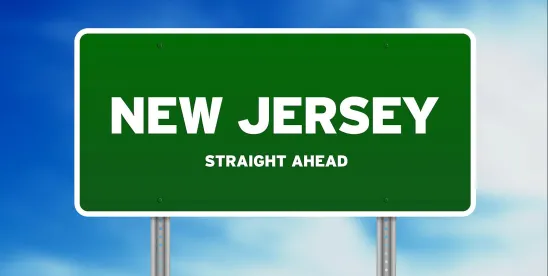Heading into 2025, New Jersey employers should familiarize themselves with notable 2024 legislative and administrative actions in the employment space.
Employer obligations now include a gender-neutral dress code, pay transparency, additional posting requirements, and more.
Notable Employment Law Developments in 2024
By way of highlight and summary, New Jersey’s 2024 employment-related measures included the following:
- Remote Employees: On May 14, 2024, New Jersey Attorney General Matthew J. Platkin (“Attorney General”) and the New Jersey Division on Civil Rights (NJDCR) issued guidance clarifying the application of the New Jersey Law Against Discrimination (NJLAD) to remote employees. In particular, the guidance takes the position that the NJLAD protects employees of New Jersey employers “regardless of their residency or where they physically work, including those who work remotely full-time or part-time on a hybrid schedule.” For additional details on this guidance, see our previous blog post.
- Pay Transparency: New Jersey enacted S2310, which, beginning June 1, 2025, will require most New Jersey employers to disclose a wage or salary range and general description of benefits and other compensation programs in their job postings and advertisements. Covered employers will also need to make “reasonable efforts to announce, post, or otherwise make known opportunities for promotion” to current employees, a feature that is not common in similar laws enacted by other jurisdictions. For additional details on S2310, see our previous blog post.
- Dress Codes: The Attorney General announced that a business’s dress code, whether for employees or patrons, must be gender-neutral. The announcement came in June after a New Jersey restaurant was found to have violated the NJLAD when it required a nonbinary customer to follow the men’s dress code. For a more detailed account of the Attorney General’s announcement, listen to our previous episode of Employment Law This Week.
- Temporary Workers’ Bill of Rights Regulations: New Jersey’s Department of Labor and Workforce Development (NJDOL) adopted regulations implementing the New Jersey Temporary Workers’ Bill of Rights (TWBR). Among other things, the regulations provide a formula for calculating the minimum hourly rate of pay for temporary workers engaged by a “third party client” and lists 12 non-exclusive principles to determine whether a temporary laborer and an employee of a “third-party client” are performing “substantially similar work.” For a summary of the TWBR regulations, see our previous blog post.
- Disclosure of Immigration Status: New Jersey enacted S2869, which imposes penalties of up to $10,000 for employers that either disclose or threaten to disclose an employee’s immigration status for the purpose of concealing a violation of New Jersey’s wage, benefit, and tax laws. Penalty amounts will depend upon the specific facts and circumstances involved, including the seriousness of the violation, the good faith of the employer, the size of the employer’s business, and whether it was a first violation. The law took effect on August 8, 2024.
- Domestic Workers’ Bill of Rights: New Jersey enacted S723, which gives domestic workers, such as housekeepers, child caregivers, and caretakers for the elderly, protections under the law. These new protections include, but are not limited to, the right to a contract, the right to minimum wage and overtime, the right to breaks, and the right to privacy, safety, and discrimination protections. The law took effect on July 1, 2024.
Also, as we previously reported, a scheduled change to the state’s minimum wage will raise the rate to $15.49 per hour for most employees as of January 1, 2025.
Satisfying Notice and Posting Requirements
New Jersey mandates that employers display a variety of official posters informing employees of the law relating to employee rights and employer responsibilities. Failure to comply with these requirements may result in monetary fines and other penalties. Generally, to ensure compliance, an employer must post the most recent version of the mandated posters in a conspicuous location, i.e., in locations accessible and easily visible to all employees and applicants for employment, such as in a lunchroom, breakroom, or human resources office. Employers operating in New Jersey must also distribute certain notices to employees. In addition, for some laws, employers must post and/or distribute the notice in English, Spanish, and the language spoken by at least 10 percent of the employer’s workforce.
As a reminder, NJDCR rules allow New Jersey employers with internet and intranet sites used by their employees to satisfy their display obligations by posting the NJLAD and New Jersey Family Leave Act (NJFLA) posters on those sites instead of posting them in the physical worksite. Except as noted below, NJDOL regulations still do not expressly permit electronic posting. Further, employers should recall that in 2020, the U.S. Department of Labor (USDOL) issued guidance encouraging employers to supplement required hard-copy postings with electronic postings continuously accessible to employees. (For more information on how to comply with the USDOL notices and posters requirements, see our blog post.) Although the USDOL guidance applies only to federal notice and posting requirements, considering the NJDCR rules described above and the laws’ intent to make notices easily accessible to employees, we continue to recommend electronic posting as a best practice for all state-mandated notices, in addition to hard-copy posting in “brick and mortar” locations, if any, when required.
Downloading Mandatory Notices and Posters
The NJDOL provides employers with poster packets containing the required notices, which are available for downloading here.
Posters required by the NJDCR are available for downloading here.
Note that, although some of the regulations specify that the notices must be on legal-size paper (81/2 x 14 inches), the posters from the state’s website printout are letter size (81/2 x 11 inches) and considered compliant.
In 2025, New Jersey requires private employers to display—and, in some instances, distribute—the following posters and notices to their New Jersey employees:
| Poster/Notice | Description/Specifications |
| Conscientious Employee Protection Act (CEPA) (AD-270) | Employers must post a notice advising employees of their rights under CEPA, New Jersey’s “whistleblower” law, along with the name, address, and telephone number of the employer’s designated contact person responsible for receiving written notification of CEPA complaints. Employers with 10 or more employees (including employees who work outside New Jersey) must also distribute a copy of the notice to their employees annually. A copy of the poster, in both English and Spanish, is available for downloading here. |
|
Gender-Equality Notice (AD-290/290S) |
Every employer in New Jersey with 50 or more employees (including employees who work outside New Jersey) must post a notice advising employees of their right to be free from gender inequity or bias in pay, compensation, benefits, or other terms or conditions of employment under the NJLAD and other state and federal antidiscrimination statutes. Employers are also required to distribute a copy of the notice: (i) in English, Spanish, and any other language spoken by 10 percent of the workforce, provided that a notice has been issued in that language by the NJDOL; (ii) at the time of hire; (iii) upon request; and (iv) to all employees annually before December 31 of each year. The notice may be transmitted electronically to employees via email or a website, so long as it is accessible and the employer notifies its employees that the notice has been posted electronically. Employers must obtain written acknowledgment of receipt. The poster is available in English and Spanish. Of note, the 2018 Diane B. Allen Equal Pay Act, which mandates pay equity and prohibits discrimination in pay because of membership in a protected class, does not include notice or posting requirements. |
| New Jersey Law Against Discrimination* | Employers must post a notice advising employees of their rights under the NJLAD. Although not required, many employers distribute their organization’s nondiscrimination and anti-harassment policy to employees annually and/or at anti-harassment training sessions. An updated poster is available in English and Spanish. |
| New Jersey Family Leave Insurance Law (NJFLI) (PR-2) | An employer must both post the NJFLI notice and provide personal notice to employees (i) at the time of hire, (ii) upon request, and (iii) whenever an employee provides notice to the employer that the employee will be taking family leave. A copy of the poster is available for downloading here. |
| New Jersey Family Leave Act* | Employers with 30 or more employees (including employees who work outside New Jersey) must display the official NJFLA poster. A copy of the updated poster is available for downloading in English and Spanish. |
| New Jersey Security and Financial Empowerment (SAFE) Act (AD-289) | New Jersey employers with 25 or more employees (including employees who work outside New Jersey) must post the SAFE Act notice. The SAFE Act provides job-protected leave for victims (and for family members of victims) of domestic violence or sexual assault. A copy of the notice is available here. |
|
New Jersey Wage and Hour Law Abstract (MW-220) [New Poster] |
Employers must advise employees of the law relating to the payment of wages, minimum hourly rates, overtime rates, acceptable deductions from wages, employee rights, and employer penalties. A copy of the 2024 poster is available here. A copy of the 2025 poster will be available for downloading in the New Year. |
| New Jersey Reporting and Recordkeeping Requirements Under State Wage, Benefit, and Tax Laws (MW-400)* | Employers must post a notice informing employees of reporting and recordkeeping requirements of eight New Jersey statutes. Additionally, employers must provide a written copy of the notification to each new employee at the time of hire. The poster is available in 11x17 or 8.5x11. |
| Unemployment and Temporary Disability Benefits (PR-1) | Covered employers must post a notice informing employees of benefits available to qualifying employees under disability insurance and unemployment compensation. A copy of the poster is available here. |
| Workers’ Compensation Law | New Jersey law requires every employer to post and maintain, in a conspicuous place or places in and about the worksite, a form prescribed by the Commissioner of the Department of Banking and Insurance (DBI) stating that the employer has secured workers’ compensation insurance coverage or has qualified with the DBI as a self-insured employer. For insured employers, the notice must include the name of the insurance carrier and other items required by the DBI. Insured employers should obtain copies of the required notice from their insurer. |
| New Jersey Smoke-Free Air Act (C2487) | A person (including a business) that has control over an indoor public place or workspace must prominently post, at every entrance, a sign stating that smoking is prohibited. The lettering or nonsmoking symbol must be in a contrasting color from the sign’s background, and the sign must advise that violators will be subject to a fine. The New Jersey Department of Health and Senior Services provides compliant notices, which are available here. |
| New Jersey Child Labor Laws (MW-129) | Employers that employ individuals under the age of 18 must post a printed abstract of the New Jersey Child Labor Laws and a list of prohibited occupations as well as a schedule of hours containing the following information: (i) the names of minors under 18, (ii) the schedule of hours, (iii) the maximum daily and weekly hours, (iv) the daily time record, and (v) daily meal times. A copy of the poster is available here. |
| New Jersey Schedule of Minors’ Hours (MW-191) | With limited exceptions, employers that employ individuals under the age of 18 must keep and conspicuously post a schedule of the minors’ hours. A copy of the poster is available here. |
| New Jersey Right-to-Know Law | The law’s posting requirement applies to public employers whose workers may be exposed to hazardous chemicals. Private—as well as public—employers, however, must label containers with their chemical contents and complete an annual chemical inventory survey. |
| New Jersey Earned Sick Leave Law (ESLL) (MW-565) | The NJDOL has created notices in 12 languages, in addition to English, for employers to use to advise employees about the ESLL. Employers must post the notification in a conspicuous place that is accessible to all employees in each of the employer’s workplaces, upon hire and upon request by an employee. Employers must also provide employees with a written copy of the notification within 30 days of its issuance. A copy of the earned sick leave poster is available for downloading in English and other languages here. |
| New Jersey Payment of Wages (MW-17/17S) | Employers must post in a conspicuous place a poster summarizing the rules governing the payment of wages under New Jersey law. A copy of the poster is available here. |
| Worker Misclassification Notice (MW-899/899b) | Employers must conspicuously post a notice for employees regarding misclassification, in a place or places accessible to all employees in each of the employer’s workspaces. A copy of the worker misclassification notice is available for downloading in English and other languages here. |
|
Notice of Vehicle Tracking Device (N.J.S.A. 34:6B-22)
|
Employers must provide notice to affected employees before using an electronic or mechanical tracking device used for the sole purpose of tracking the employees’ movements. |
|
Domestic Workers’ Bill of Rights [New Poster] |
Employers must notify domestic workers of their work rights and how to file a complaint alleging violations of the law. As of December 20, 2024, the required notice remains forthcoming. Once the NJDOL finalizes the notice, it will be available here. |
| * Indicates electronic posting and distribution is permitted | |
In addition to the above, New Jersey has posting requirements aimed at specific sectors of the labor force. For example, New Jersey employers associated with the sale, rental, or lease of properties must advise of the NJLAD in housing. Employers that provide services to the public—including, but not limited to, restaurants, hotels, hospitals, movie theaters, and shopping centers—must advise patrons of the NJLAD in public accommodations. These businesses should display posters in areas readily accessible to the public (for example, near cash registers). Those posters are available for downloading here. Health care facilities must post notices apprising employees of mandatory overtime restrictions. A copy of the notice is available here.
Employers should also remember to similarly comply with posting requirements under federal law; workplace posters from the USDOL are available for downloading here. (See also our previous blog post regarding the U.S. Equal Employment Opportunity Commission’s updated “Know Your Rights” poster.)
Employers may meet many of their posting obligations by purchasing New Jersey and federal “all in one” posters from a reputable supplier and subscribing for updates.
What New Jersey Employers Should Do Now
- Review your dress code policy to ensure compliance with new gender-neutral requirements.
- Prepare to disclose wage or salary ranges, general descriptions of benefits, and other compensation programs in future job postings and advertisements.
- Review all policies and procedures concerning internal and external promotions, transfer opportunities, and new job postings to ensure that they all meet the content requirements of S2310.
- If engaging covered temporary workers through a staffing agency, then:
- refer to NJDOL’s formula to calculate and provide the staffing agency with the average rate of pay and average cost of benefits of employees,
- consider NJDOL’s 12 principles to determine whether a temporary worker and a third-party client’s employee are performing the same or substantially similar work, and
- otherwise comply with the TWBR’s administrative, notification, and recordkeeping mandates.
- Review all posting and notice requirements applicable to your organization and update, as needed, to ensure compliance with current law.
- Keep or take a photo of the posters/notices that are being replaced to maintain a historical record of compliance.
- Review your organization’s new hire materials to ensure that they include the required notices.
- If distributing required notices by email, require employees’ written acknowledgment of receipt.
- Consider subscribing to a reputable supplier of federal and state notices.





 />i
/>i
